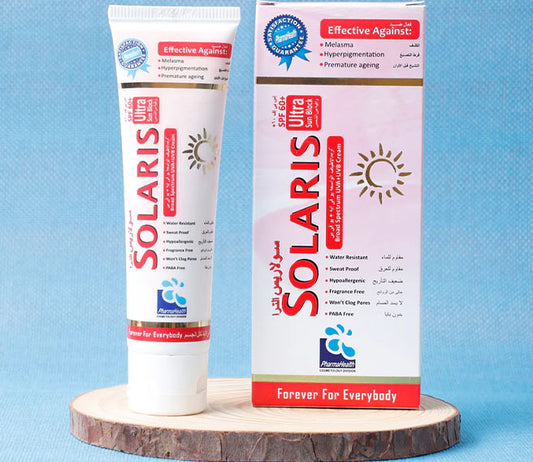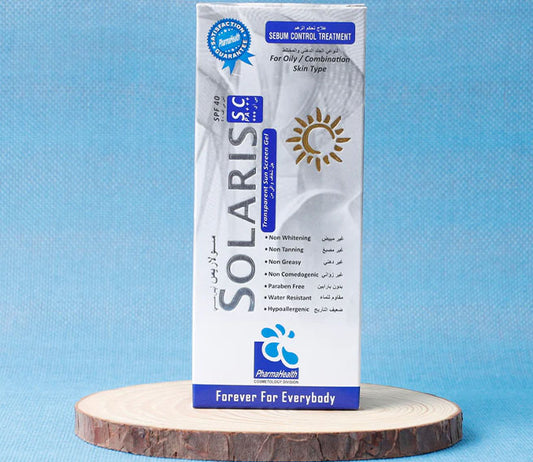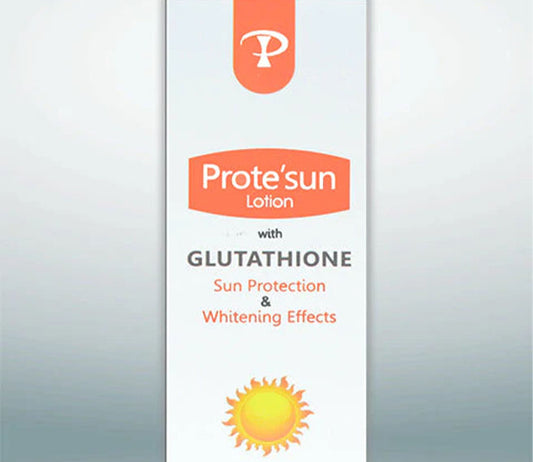Best Sun Block Prices in Pakistan – Safe, Effective & Affordable
-
Neobrella Sunblock spf 60
Regular price Rs.835.00 PKRRegular priceUnit price / perRs.930.00 PKRSale price Rs.835.00 PKRSale -
 Sold out
Sold outSkin Aqua Sunblock
Regular price Rs.2,000.00 PKRRegular priceUnit price / perRs.2,055.00 PKRSale price Rs.2,000.00 PKRSold out -
Solaris Ultra Sunblock Cream
Regular price Rs.930.00 PKRRegular priceUnit price / perRs.1,026.00 PKRSale price Rs.930.00 PKRSale -
U Veil Sunblock
Regular price Rs.595.00 PKRRegular priceUnit price / perRs.575.00 PKRSale price Rs.595.00 PKR -
Suncap Cream SPF 60
Regular price Rs.702.00 PKRRegular priceUnit price / perRs.595.00 PKRSale price Rs.702.00 PKR -
Ceragel SPF 50 Gel 50g
Regular price Rs.838.00 PKRRegular priceUnit price / perRs.932.00 PKRSale price Rs.838.00 PKRSale -
 Sale
SaleSpectra Sunblock
Regular price Rs.898.20 PKRRegular priceUnit price / perRs.998.00 PKRSale price Rs.898.20 PKRSale -
Spectrum SC Gel SPF 60
Regular price Rs.1,345.00 PKRRegular priceUnit price / perRs.1,495.00 PKRSale price Rs.1,345.00 PKRSale -
Solaris SC Gel SPF 40 UVA/UVB
Regular price Rs.2,272.50 PKRRegular priceUnit price / perRs.2,525.00 PKRSale price Rs.2,272.50 PKRSale -
Lavida Sunblock SPF 50+
Regular price Rs.1,431.00 PKRRegular priceUnit price / perRs.1,590.00 PKRSale price Rs.1,431.00 PKRSale -
Block O Sun Sunscreen SPF 60+
Regular price Rs.675.00 PKRRegular priceUnit price / perRs.750.00 PKRSale price Rs.675.00 PKRSale -
Sunlex 30 Gram Sunscreen SPF 50
Regular price Rs.765.00 PKRRegular priceUnit price / perRs.850.00 PKRSale price Rs.765.00 PKRSale -
Protesun Whitening Sun Block Lotion 60 ml
Regular price Rs.1,791.00 PKRRegular priceUnit price / perRs.1,990.00 PKRSale price Rs.1,791.00 PKRSold out -
 Sale
SaleSpectrum Max SPF100
Regular price Rs.1,345.00 PKRRegular priceUnit price / perRs.1,495.00 PKRSale price Rs.1,345.00 PKRSale -
Neobrella SunBlock spf 40
Regular price Rs.1,800.00 PKRRegular priceUnit price / perRs.1,985.00 PKRSale price Rs.1,800.00 PKRSale -
UV Lite Sunblock SPF 60 P Medium
Regular price Rs.2,990.00 PKRRegular priceUnit price / perRs.2,691.00 PKRSale price Rs.2,990.00 PKR
FAQS
Q. Why should you put on sunscreen twenty minutes in advance?
The skin is a collection of peaks and troughs at the microscopic level. Sunscreen can seep into the troughs and properly bind to the skin if it is applied in layers around 20 minutes before exposure to the sun. Reapplying sunblock every two hours is advised by several sunscreens.
Q. What is the sunscreen three-finger rule?
Apply the rule of three fingers: Fill your ring, middle, and index fingers in three complete lines of sunscreen. That is the appropriate quantity to shield your neck, ears, and face.
Q. What happens if you wear sunscreen for an extended period of time?
If you don't wash off your sunscreen at the end of the day, it will be less effective, cause skin damage, greatly increase irritation, and give trapped dirt and oils more opportunity to clog pores and spread bacteria.
Q. What would happen if we put sunscreen right on our faces?
Yes, if you use enough sunscreen (1/4 teaspoon for face and neck), you can still protect your face from UV rays. However, your skin type, the sunscreen formula, and your daily requirements will determine whether it's the best option.


















